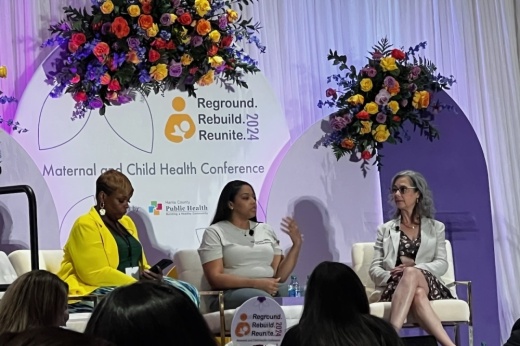
"When we look at the differences, the disparity [and] inequity that exists for our Black and white women, our Black babies are one and a half times more likely to be born preterm than a white baby. As we look at the inequities that exist in this though, our Black women, our Black babies are three times more likely to die and to not be able to celebrate with their families, and this is due to a myriad of issues," said Alicia Lee, March of Dimes director of maternal and child health collective impact.
According to county health officials, when it comes to the rise in pregnancy-related deaths since 2016, particularly among Black birthing persons, disparities are disproportionately affected by racial inequities and a lack of access to resources. HCPH Executive Director Barbie Robinson said the overall discussion around disparities must include the root causes of the many health conditions that lead to complications.
"When people are food insecure, when they're housing insecure, when they have economic instability ... we call those the social determinants of health. Those are the kinds of factors that are good predictors of good health and good birthing outcomes. So when those predictors are not positive, then we're at risk of not seeing positive birthing outcomes," Robinson said.
What else
Black Maternal Health Week is observed annually from April 11-17. During the county's maternal and child health conference held during the annual observance, Robinson introduced the Maternal Health Bill of Rights. The Maternal Health Bill of Rights, according to Robinson, aims to move the needle in addressing the public health crisis of maternal and infant mortality. Some of the rights listed relate to prenatal care, family planning rights, breastfeeding, pregnancy complications and delivery options.
Alysia Greer, who was attending the conference on behalf of the Houston nonprofit Civic Heart, recalled her birthing experience when delivering her son at a county hospital more than two decades ago. After she underwent a cesarean section, she said that when she inquired about the pain she was feeling where the incision was made, the treating physician at the time pinched the area to see her pain tolerance and said she would be fine. Greer said she only recently discovered how common Black women experience uncomfortable situations during the birthing process.
Get involved
The 2023 report card can be accessed here: maternity rates report card.





